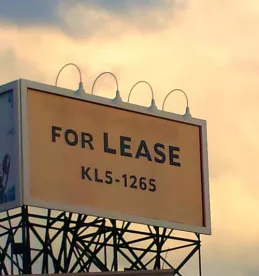On 7 April 2020, the National Cabinet issued a Mandatory Code of Conduct (the Code), which imposes a set of good faith leasing principles that apply to certain commercial tenancies experiencing financial stress or hardship because of the COVID-19 crisis.
Last night, the Queensland Parliament has passed the COVID-19 Emergency Response Act 2020 (the Act). The Act is similar to the emergency powers passed in other states in that it enables regulations to be passed prescribing limits on landlords' and tenants' rights. The key difference is that the Act has been passed after the Code was issued and therefore includes specific provisions referencing Code principles.
You can read more about the Code and the emergency powers provisions in other states in our previous alerts which can be found here.
The regulation-making power is broad as it allows for regulations to be made under both the Act itself or the Retail Shop Leases Act 1994 (Qld) in relation to a "relevant lease" in response to the COVID-19 emergency.
Part 7 of the Act deals with retail and other prescribed leases (but not residential leases which are dealt with in Part 8). A relevant lease for the purpose of that Part is a retail shop lease under the Retail Shop Leases Act 1994 (Qld) or a "lease prescribed by regulation". A lease includes any agreement under which occupancy rights are granted (except for residential leases).
By defining relevant leases in this way, the Act leaves open the categories of leases that may be affected by the regulations: the underlying Code leasing principles may have an application to a broader range of tenancies than was initially contemplated by the National Cabinet. In addition, by extending the regulation-making power to regulations made under both the retail leases legislation and the Act itself, Parliament has avoided the issue with the NSW legislation where the regulation-making power has been made by amending existing legislation. Whilst this works well for category-specific legislation applying to retail leases, it does not work so well for commercial and industrial leases which the National Cabinet intended to be subject to the Code.
Like the Code, Part 7 of the Act has a tenant focus. It allows regulations to be made which:
- prohibit lessors from recovering possession of premises
- prohibit lessors from terminating a lease
- regulate or prevent the exercise or enforcement of another right of a lessor
- exempt a lessee (or class of lessees) from the operation of a provision of an Act, lease or other agreement relating to the premises
- require parties to have regard to principles or a code in negotiating or disputing matters
- require mediators to have regard to principles or a code when mediating
- provide for a dispute resolution process
- prescribe other matters necessary to facilitate the above
- provide for a maximum penalty of 20 penalty units for a breach of the regulation.
Any regulation made under the Act can have retrospective application to 23 April 2020 and expires on 31 December 2020. Depending on the time taken for the current "lock down" measures to be relinquished, the regulations have the potential to regulate landlord and tenant conduct well after businesses have resumed normal operations.
Part 6 of the Act provides for the appointment of a Small Business Commissioner to provide dispute resolution support for small businesses including mediation for tenancy disputes.
The scope of matters set out in Part 7 of the Act could have a wider application than the Code leasing principles. For example, leasing principle 1 of the Code provides that lessors must not terminate leases due to non-payment of rent during the COVID-19 pandemic period (or reasonable subsequent recovery period). However, the Act indicates a regulation may be made which prohibits lessors from terminating a lease for any reason (not just for failing to pay rent).
This mirrors the wording in the NSW legislation (which pre-dated the Code) but it remains to be seen how far the States will go in making the regulations.
The regulatory framework contemplated by Part 7 of the Act has not yet been released and the timing for any supporting regulations is unclear. On presenting the draft Bill to Parliament, Premier Palaszczuk foreshadowed further consultation with stakeholders:
"As it is anticipated the legislative framework for the fair leasing principles will need to apply during the COVID-19 pandemic and potentially a subsequent reasonable business recovery period, the framework will continue to be monitored. Our government will consult with key stakeholders on the development and implementation of the fair leasing principles framework in Queensland."
Hopefully, through this consultation process, the Government will address some of the uncertainties that were initially identified in the Code (here), with a view of introducing a regulatory framework that is, in all the circumstances clear, balanced and commercially focused, for the benefit of all stakeholders.
*This information is accurate as of 11.00 am Friday 24 April 2020 and is subject to change as this situation evolves.
This publication/newsletter is for informational purposes and does not contain or convey legal advice. The information herein should not be used or relied upon in regard to any particular facts or circumstances without first consulting a lawyer. Any views expressed herein are those of the author(s) and not necessarily those of the law firm’s clients.




 />i
/>i
